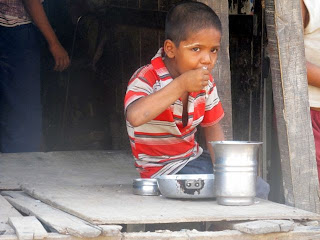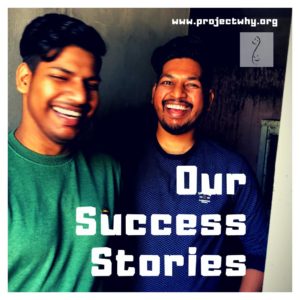For the first time in our life, we are sure we have enough to eat. So instead of spending 15 hours a day trying to find money to buy roti and salt, we have started a cooperative and are running a dairy. These are the words that end an incisive and eye opening article on the Food Security Bill. Like too many of us I fell for the damaging hysteria and misinformation campaign, till I kicked myself for having doubted even for an instant the validity of a legislation that aimed at eradicating hunger. Never mind the flaws, never mind the abysmal past records of poor implementation of social projects, never mind the fear of possible corruption such a bill needs to be lauded. As is rightly said article, none of us have ever experienced what hunger is! None of us have experienced the total bewilderment of one family wondering why another family exactly like theirs hold a magic card that gives them access to food! None of us has had to rock a toddler wailing with hunger to sleep. None of us seems to process the terrifying statistics that we read or hear about. Be it the 5000+ children who die every day of malnutrition related problems or the fact that one out of very two children in India is malnourished. None of us seems to fathom the fact that these malnourished kids will grow stunted both physically and mentally. None of us seems to realise that these stunted kids will be tomorrow’s frustrated youth, 706 million of them! Unless we address shortcomings now, God help us later!
Let us come back to the Food Security Bill and our apprehensions. True a few kilos of grain cannot make hunger disappear in a jiffy. But there are two important elements in this Bill that we seem to overlook. These address the crucial 9 months and 1000 days which are the most important in the growth of any child: the 1000 rupees a month to pregnant and lactating mothers for a duration of six months, and the (in)famous midday meal. It is sad that these have been in place for over 3 decades and not run the way they should have. Without these we cannot hope to solve the spectre of malnutrition. May be now that Food Security will become a right, things may improve provided there are people with a heart and a conscience who take up the cudgels on behalf of these voiceless and vote less children and make it happen.
The follower of Antisthenes, I mean the cynics, will find many flaws and shortcomings to this Bill. And yes there are many. They will crib about the cost, about making society dependent and hence lazy, about pilferage and rotting grains. But we need to look beyond all this, or rather change our perception and look at this Right as an investment in India’s growth story. And it is not only food that we need to give them but clean water, toilets, housing and a good education that will allow them to become assets rather than liabilities.
I have often wondered why our educationists have not an education system where children after class VIII are taught vocational skills along with basic education. Skills that will allow them to enter the work force in better conditions. As a growing economy we need skilled people and many of these could be imparted along with the three Rs. Carpentry, electrical work, tailoring, the list is endless. Today kids are taught practically nothing that can make them earn a decent living. In France there is an option called Bac en alternance. After clearing the equivalent of our class X, students can opt for a class XII (Baccalaureate) where they learn a trade while studying. For instance if a kid wants to be baker he spends 2 days in school and three days working in a bakery. These options are for the less academically inclined kids who then do not need any further education. This should be adopted in India as soon as possible, before we produce too many frustrated and angry youngsters. But that will not be as our rulers and policy makers are content with churning out innumerable youngsters with 33% pass percentages as they make potential easily manipulated vote banks.
I am not an economist. I have no head for figures but many argue that the financial burden is not as large as some would like us to believe. It is sound economics. Of course the problem of identifying the beneficiaries is a big challenge. But a state like Chhattisgarh seems to have solved the problem by widening the net and giving this security to 90% of its population through a well reformed distribution system. Instead of taking the route of complex and illogical parameters to identify the needy, maybe the intelligent way would be to give it to a larger chunk rather then survey whether you have a cow or not.
It is time we looked ahead and not got lost in nitty gritty . It is time we looked at the child begging at a red light as a citizen of tomorrow and ask ourselves what he/she will become.
Our future is linked to theirs!





